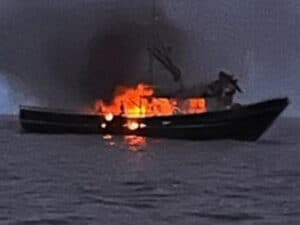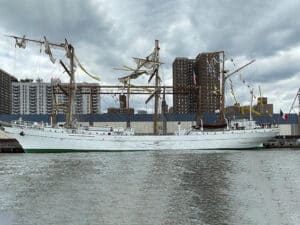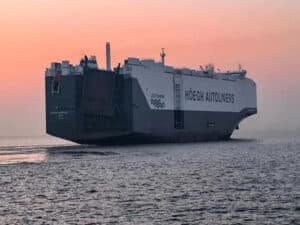
Op-Ed: Maritime 4.0 shouldn’t be an opportunity lost
Written by
Christian Dwyer (L) and Donal Keaney
Shipping’s future is intertwined with its ability to digitalize operations effectively and responsibly, say Christian Dwyer, global head of admiralty, and Donal Keaney, senior marine manager, at Ince.
The long-term efficiency, safety and sustainability of shipping is reliant on the realization of Maritime 4.0 – the next phase of technology development where the industry exploits opportunities in digitalization and automation. However, to date, progress has been modestly incremental with the increasing use of solutions such as Electronic Chart Display and Information Systems (ECDIS), ballast control systems, voyage optimization technologies and engine data logs.
Further, there is still a significant gap between the minimum standards for training and the capabilities of modern systems, even with, for example, ECDIS despite the fact that its implementation began over two decades ago. A thorough understanding of ECDIS and its route planning functions is vital to ensure passage plans are safe, but this is not always the case in practice even today.
There is no doubt that ECDIS has been a positive safety development, despite some accident investigators implicating it, particularly in the early years of its implementation. And issues continue to occur. Take, for example, the 2019 Australian Transport Safety Bureau (ATSB) investigation of the grounding of an Australian Border Force cutter on a reef. The investigators cited underlying safety issues with the effectiveness of ECDIS type-specific training, ECDIS software updates and the use of a single point feature to represent relatively large physical features on electronic navigational charts.
The U.K. Marine Accident Investigation Branch has highlighted that in some instances, officers may have attended ECDIS training and completed ECDIS familiarization, but they are still not necessarily competent or confident operating the system, especially in terms of critical safety settings.
Clearly, there is on-going work to be done on ensuring the effective use of ECDIS, but we must also learn from why this is needed, because digitalization at sea is expanding into every aspect of seafarers’ tasks. Already, the human element of shipping’s digitalization isn’t keeping up with the speed of technology, and this creates liability. Beyond ECDIS, training gaps for Maritime 4.0 and increasingly autonomous ship operation are already starting to gain attention.
Maritime 4.0 shouldn’t be an opportunity lost due to lack of recognition of the human element and poor change management. A system can only be effective if properly used, so training should go beyond ticking off a software provider’s manual checklist.
Yet, the fragmented and diverse nature of training programs for digital systems has meant that there is no best practice benchmark for ship operators and their crews to aspire to. It is also important that training builds a seafarer’s trust in the new systems being introduced. Otherwise, we will have instances such as the 2020 grounding of a chemical tanker in Scotland. The MAIB investigation concluded in this case that: “The grounding happened because the bridge team relied on locally produced survey data that did not show a boulder obstruction near the pier. This survey data appeared to the crew to be reliable and accurate, so was preferred to the ECDIS data, which did show the obstruction.”
Seafarers face evolving risks as a result of Maritime 4.0. As digitalization gains pace, the International Convention on Standards of Training, Certification and Watchkeeping for Seafarers (STCW), should be reviewed to ensure that it reflects the new realities and needs of operators and their crews. Similarly, Ince believes that the SOLAS Convention will require updating to reflect future advances in the digitalisation of vessels and the impact this will have on vessel safety standards.
With the potentially incremental move towards autonomous shipping, the role of navigation will take on new, and different, importance. The industry would benefit greatly from close collaboration and ensuring standardisation when implementing new digital applications. This would mitigate risks and realise the full potential of digital innovation.
Re-imagining training strategies and implementation to ensure that Maritime 4.0 is truly a new digital era for shipping will not just keep operators and seafarers out of the courtroom, it will smooth the pathway to a truly safe and sustainable future.




